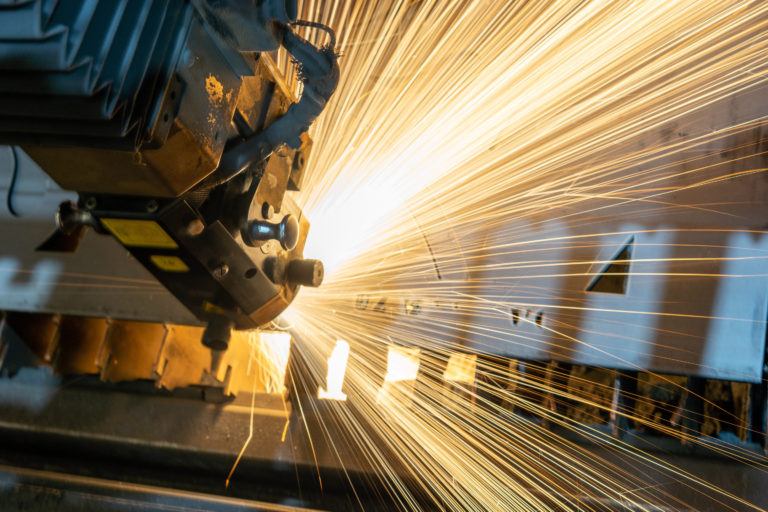
The 7 Decision Making Factors in Leasing vs. Buying Equipment for Small Business.
by Bruce Tannas
As a business owner you need to make decisions about where to allocate your capital. When you decide about needing new equipment for your business you will also have to decide how best to pay for it. For a more costly piece of equipment leasing or financing it is a good option because they both preserve current working capital of the business. So, the next question is it better to purchase or lease the equipment? This article reviews some of the factors that will help you with making a leasing vs buying equipment decision for your small business.
Characteristics of Leases vs. Financing
When you are thinking about financing or leasing equipment you need to understand the main characteristics of each option (for a fuller discussion of small business financing see our Guide to Small Business Financing).
If you are planning to buy the equipment you could obtain a term loan at a bank, credit union or developmental lender. Whereas, if you plan to lease the equipment, you could obtain either a capital lease or operating lease from the equipment manufacturer or independent leasing company. The following is a discussion of these three options.
Term Loan:
If your company is purchasing the equipment and financing the purchase, the most common method of financing is a term loan. The equipment becomes an asset to the company while the loan becomes a liability. The value of the equipment is written off according to the allowable Capital Cost Allowance for the type of asset (seek your accountant for advice on this).
Operating Lease:
An operating lease is like renting the equipment over an agreed period of time. Since the equipment is rented, it isn’t recorded as asset and the lease payments usually becomes an expense. The leasing company usually charges the anticipated depreciation of the equipment for the period of time plus a financing charge. Most operating leases can include a buyout of the equipment at the end of the lease. This gives you the option to purchase the asset at the depreciated price or turn it back to the leasing company.
Capital Lease:
A capital lease is a hybrid between a term loan and an operating lease. The equipment becomes an asset to the company and the total lease cost becomes a liability. However, unlike a term loan, the lease payments are usually expensed and there is no depreciation written off on the equipment for tax purposes. Most capital leases include a buyout cost of the equipment at the end of the lease which are usually for a minimal amount. This gives you the option to purchase the asset or turn it back to the leasing company.
What are the potential decision factors in leasing vs. buying equipment for small business?
- Preservation of Working Capital: Depending on the equipment and industry, the downpayment may be higher for equipment for a term loan (usually 20-30% of the value of the equipment). This contrasts with some leases which only require a deposit on the equipment which can be as little as the first and last months payment.
- Cash Flow: Payments for operating leases are often lower than for term loans and capital leases. This may help the cash flow in the short term. However, unlike a term loan, leases represent a cash flow liability as payments must continue to the end of the lease. Also, if the equipment is durable, it may make sense to own it in the longer term rather than rent it.
- Taxes: The payments for leases can be written off for the amount paid in a given period. Whereas the interest plus the depreciation for the equipment can written off for equipment purchased with a term loan. There is generally some flexibility of when the equipment is depreciated depending on which method is chosen. In some cases, the Capital Cost Allowance (allowable depreciation that Canada Revenue sets) may allow significant upfront depreciation of the equipment thus allowing the company to write off larger amounts against revenues early on (even if it was purchase late in the fiscal year).
- Credit: For small businesses, underwriting of credit is often based on both the strength of the owners’ personal credit as well as the strength of the business credit as well. With a term loan the owners’ may want to consider whether they wish to have their credit impacted if they plan to purchase other personal items. In addition, both term loans and capital leases, appear on the balance sheet of the company (along with the asset) and may impact the granting of future credit if debt to equity ratios increase beyond underwriting thresholds.
- Availability of Financing: Sometimes the decision is made for you by the availability of financing. When the economy is tight, lenders tighten up their requirements as well. Whereas equipment manufacturers may be eager to sell their equipment and thus offer better terms to lease their equipment.
- Equipment Use: How you plan to use the equipment may affect the purchase vs. leasing decision. If you plan to alter or customize the equipment from the original manufacture, then you may run into issues with the terms of your lease and thus a purchase decision might make more sense.
- Equipment Lifespan: If the equipment needs to be replaced frequently, it may make sense to use an operating lease because you will likely continually have replace the equipment and therefore have an ongoing payment anyway. In contrast, if you plan to keep the equipment a long time, it might make sense to either purchase it with a term loan or a capital lease. That way, once the payments are done, your business recovers additional cash flow capacity for the balance of the equipment’s useful life.
Determining whether it is better to purchase or lease equipment can be complex. You should take the time to research your options and speak to your accountant about the pro’s and con’s of each option. Hopefully this discussion of the 7 decision making factors in this article will help you with making a leasing vs buying equipment decision for your small business.
References:
https://lagerquistaccounting.com/4-keys-evaluating-equipment-lease-vs-purchase-small-business/
https://quickbooks.intuit.com/r/expenses/pros-cons-leasing-vs-buying-equipment/
https://www.bdc.ca/en/articles-tools/money-finance/get-financing/buy-lease-business-equipment
https://www.thomsonreuters.ca/en/dtprofessionalsuite/blog/business-assets-lease-vs-owning.html
Connect4Commerce offers entrepreneurs and small business owners across the country a convenient and comprehensive place to connect, exchange goods and services, and advance their businesses. Be sure to check out further articles in our Small Business News blog for additional resources. Also, find business and industrial equipment on our site that can help you grow your business.


